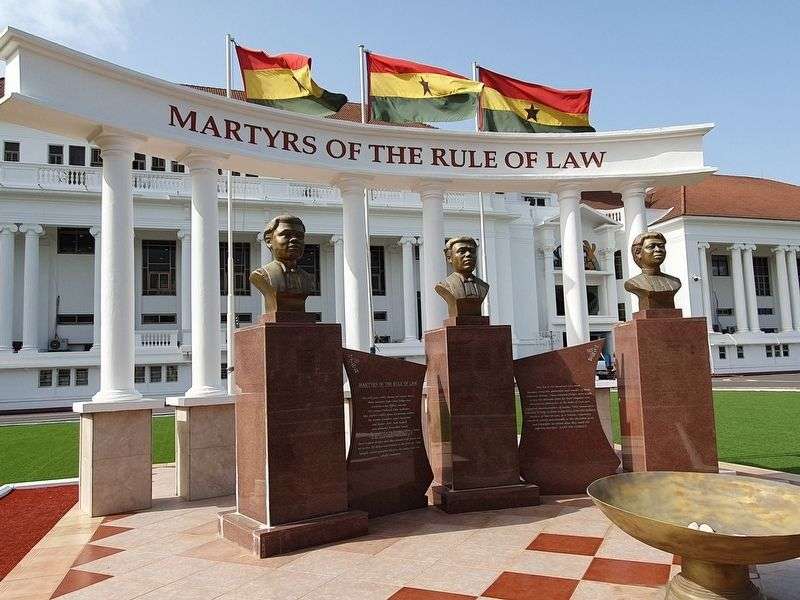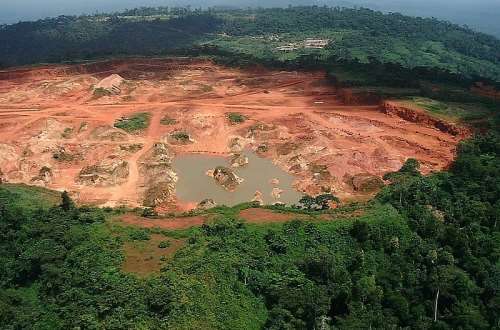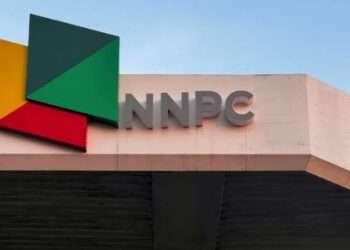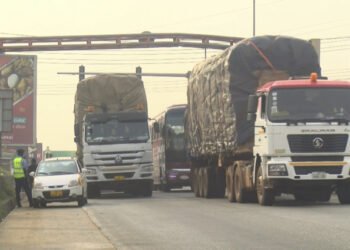Taking a firm stand against galamsey, pressure group Democracy Hub has initiated legal action against the government for deporting foreign nationals linked to illegal mining without first prosecuting them under Ghana’s legal framework.
The group argued that this approach breaches both domestic law and constitutional protections.
The case, filed in the High Court, seeks a series of declarations and orders that would force the government to stop deporting foreign galamsey suspects and instead prosecute them in accordance with the Minerals and Mining Act, 2006 (Act 703).
Democracy Hub contended that Section 99 of Act 703 mandates prosecution for illegal mining offences and does not allow deportation as a substitute.
The group insisted that bypassing prosecution for deportation not only violates this legal mandate but also undermines the administration of justice.
“[We seek] a declaration that the deportation of foreign nationals arrested for engaging in illegal mining without prosecution constitutes a violation of Section 99 of the Minerals and Mining Act, 2006 (Act 703).”
Democracy Hub

The group maintained that the law mandates legal proceedings to be carried out within Ghana’s judicial system and must be applied equally to both citizens and non-citizens.
The legal action also questioned the policy decisions made by the Minister for the Interior and the Ghana Immigration Service.
According to the group, the move to deport individuals accused of engaging in galamsey without trial is unlawful, ultra vires, and inconsistent with Article 19(2) of the Constitution of Ghana.
“[We seek] a declaration that the selective decision not to prosecute foreign nationals, while prosecuting Ghanaians for the same offences, constitutes unequal treatment before the law and violates Article 17 of the Constitution.”
Democracy Hub
This, they argued, amounts to clear discrimination.
Legal Pressure Mounts Over Galamsey Deportation Practice
Democracy Hub also stressed that permitting foreigners to avoid trial through deportation creates a troubling precedent and weakens the rule of law.
The group argued that the Government of Ghana has no legal authority to substitute criminal prosecution with deportation for offences under Act 703, and such deportations amount to unlawful interference with the administration of justice.

The lawsuit added that the government has not presented any proof that deported individuals face prosecution in their countries of origin, thereby casting doubt on any claim that deportation serves as an adequate substitute for legal accountability.
“[We seek] a declaration that the policy of deporting foreign nationals accused of illegal mining, in lieu of prosecution under Ghanaian law, is not justified by any evidence of foreign prosecution and is therefore arbitrary, unlawful, and contrary to the rule of law.”
Democracy Hub
As part of the suit, Democracy Hub is asking the court to issue an order directing the Minister for the Interior, the Ghana Immigration Service, and the Attorney-General to immediately halt any further deportations of foreign nationals arrested for galamsey without first subjecting them to the judicial process.
Additionally, the group is requesting an order compelling the Attorney-General to initiate prosecutions against all foreign nationals already arrested but not tried for galamsey offences.
Democracy Hub noted that it wants the Attorney-General to ensure legal accountability and uphold the rule of law.
Democracy Hub is also demanding transparency.
The group requested that the court order the Interior Ministry and the Immigration Service to release all documentation, diplomatic exchanges, and monitoring reports that might confirm whether deported individuals have been prosecuted in their home countries.

The legal filing further includes a request for the Ghana Immigration Service to make public any agreements, internal directives, or memoranda that guide the deportation of foreign nationals linked to illegal mining.
They argued that public access to such documents is essential for transparency and democratic accountability.
“[We seek] an order restraining the Defendant from further deporting any foreign national arrested for illegal mining or other offences under Act 703 without first initiating and exhausting criminal prosecution in Ghana, unless directed otherwise by a court of competent jurisdiction.”
Democracy Hub
Another component of the suit demanded that the Attorney-General issue public guidelines clarifying how non-citizens should be treated under Section 99 of the Minerals and Mining Act.
These guidelines, the group argued, should align with constitutional requirements and Ghana’s international obligations.
Democracy Hub also asked the court to order the production of a comprehensive list of all individuals deported without trial for galamsey-related offences between 2021 and 2025.
The group maintained that this information is necessary to understand the scale and implications of the government’s current policy.
To support its legal action, Democracy Hub is also seeking “costs inclusive of legal fees and incidental expenses incurred in prosecuting this action in the sum of GHS 300,000.”
They further requested that the court grant any other relief it deems appropriate in the matter.
Meanwhile, this case is expected to attract considerable public attention as it explores the limits of Ghana’s legal responsibilities in addressing illegal mining offences.
It may also influence future approaches to the treatment of foreign nationals within the country’s justice system.
READ ALSO: UK Hits Russia With Tough New Sanctions



















